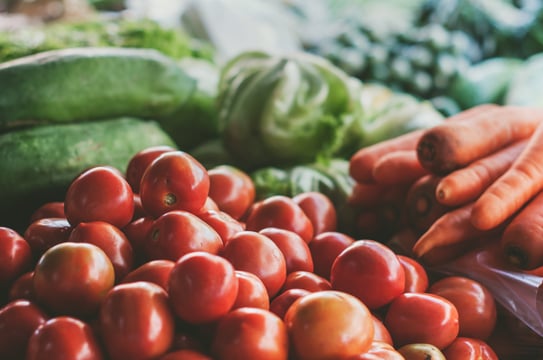Is your organization interested in digital transformation? Using digital technologies to change traditional ways of doing business has been under way for years, but recently this wave of digital innovation has come to the fresh food supply chain and post-harvest technology.
The fresh food industry is currently in a state of dynamic fluctuation. Due to new competitive pressures, food safety issues, and changing customer demographics and buying preferences, Millennials are changing the way they purchase and consume food.
Online shopping is also changing grocery retailing, and the Amazon purchase of Whole Foods brought massive new competitive models into play. Naturally, this kind of increased competition among grocery retailers and food suppliers causes changes in business processes.
 Zest Labs, a post-harvest agtech company with proven solutions for shelf life and freshness management, is one company responding to these industry changes. For instance, the company utilizes advanced software to reduce food waste in the supply chain by 50 percent or more. As its solution reduces waste and improves margins, the company believes it is well positioned to have a significant, positive impact.
Zest Labs, a post-harvest agtech company with proven solutions for shelf life and freshness management, is one company responding to these industry changes. For instance, the company utilizes advanced software to reduce food waste in the supply chain by 50 percent or more. As its solution reduces waste and improves margins, the company believes it is well positioned to have a significant, positive impact.
No Wasted Opportunities
Food is something eminently relatable. Who doesn’t know what it’s like to buy produce, such as a clamshell of strawberries, take it home, and be disappointed when it spoils the next day?
This happens when an item runs out of shelf life; it spoils prematurely. Zest Labs prevents this by providing insights about the actual freshness of products.
“Food waste no longer needs to be a cost of doing business,” says Kevin Payne, vice-president of marketing at Zest Labs. “We can reduce food waste by more than half with advanced technologies and new approaches to solving food waste. This helps us feed more people and improve environmental sustainability.”
As Zest Labs illustrates, new software and hardware solutions can truly improve business practices and the products offered to customers. Depending on whom you ask, digital transformation can provide some of the following benefits:
- Improved supply chain visibility and traceability
- Reduced food waste and costs and increased profitability
- Enhanced food safety capabilities
At retail outlets, large percentages of fresh fruit is wasted. Most other industries would not tolerate this level of waste, yet this food waste problem persists, filling landfills, creating dissatisfied customers, and negatively impacting profit margins across the fresh food supply chain. With effective execution of digital transformation, however, these problems can be solved.
Another way to test if digital transformation data could benefit your cause is if that data would make it easier to record progress. Most companies have established patterns and cycles that, when everything goes right, work perfectly, but what happens when setbacks arise? Digital insights can reveal pain points so you can anticipate problems and situations can improve over time. Using the strategy put in place by Zest Labs, evaluate your goals to see if a similar approach would be applicable and beneficial to your business model.
Zest Labs recently won a Bronze Stevie Award in the Company/Organization Categories for Innovation of the Year - Business Product Industries in The 17th annual American Business Awards®.
Interested in winning a Stevie Award in 2020?















